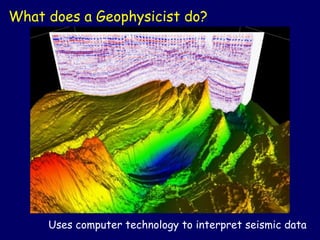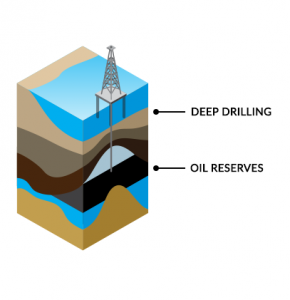All Categories
Featured
Table of Contents
Geophysical Survey Flashcards in Bickley Western Australia 2021
This work is progressively contracted out, so consultancies offer another source of work. Consultancy firms differ in size, from very small business to big multinationals. Some consultancies are quite specialised in using specific geophysical methods or working in particular areas, while others offer a more diverse series of services to their customers.
The extraction of gas from land fill sites is another area of work and this might grow in the future. Expedition companies might carry out work for building firms, water companies, mining business and environmental agencies, so geophysicists might be used in any of these settings. Other companies include: geological surveysgovernment bodies and agenciesuniversities and research institutes.


Jobs may be listed in the oil and gas sector press. Recruitment is affected by oil price variations and the level of competitors for positions varies depending on this. Professions Days, which cover the complete variety of geoscience careers and are usually gone to by a variety of key industry employers, are run by The Geological Society.
Geophysical Methods Commonly Employed For Geotechnical ... in Lockridge Western Australia 2021
A few of the large oil and gas business provide a full two-year structured training program throughout the breadth of geophysics, including the opportunity to experience operate in various teams prior to specialising in one area. Your training might include work on: existing wellsmagnetic and gravitational possible field information analysisresearchrock analysis. It's more normal for your initial training to be provided on the job.

There may be a probationary period throughout which you work alongside a skilled associate. Competency-based appraisals occur frequently in most firms. In smaller sized firms, and for scholastic posts, there is not likely to be any formal training - you'll be expected to start work straightaway and select up skills as you go along.
If you work for a smaller sized company, you may find that you need to take duty for organizing and funding your own development and training. If you have a geology degree, membership of The Geological Society can be beneficial for networking and for keeping up to date with the industry.
Bsc Geophysics in Roleystone WA 2020
You might likewise find it beneficial to join the PESGB (The Petroleum Exploration Society of Great Britain, which has a geophysics special interest group. After a probationary period, and once you've gained some experience, you could progress to senior geophysicist, then group leader and then into a senior role in management.
The ease of movement in between functions depends on the company structure. Research study at Masters or Ph, D level in a subject associated to geophysics or geosciences might assist with your profession advancement and development. The employment market within the oil and gas market is really depending on price and this might affect your opportunities for career development.
For knowledgeable geophysicists, freelance consultancy uses a good path for profession development. As a geophysicist, you're likely to have several jobs throughout your working life.
How To Become A Geophysicist in White Gum Valley WA 2022
From geophysics, it's possible to focus on seismology (completing further training to become a seismic interpreter) or to move into related locations such as engineering geology or danger prediction.
Deciding what to study in college is a tough choice. Even if you understand that your field of interest lies in science, what program of research study is best for you? If you make the decision to major in physical and life sciences and pursue a career as a geophysicist, you're getting ready for an exciting and successful profession.
The first step to achieving your objective of ending up being a geophysicist is making a degree. Even for entry-level positions in the field of geoscience, you'll need a bachelor's degree (a geophysicist college degree) from a certified college or university. Geophysicists should be able to: examine rocks, photographs, and other pieces of information carry out research both in the field and in laboratories develop maps and charts of their findings compose reports To achieve all this, students need a specialized education for geophysicist careers.
As mentioned above, you'll require a bachelor's degree in geoscience or an associated discipline, such as a physical science or a natural science, to land an entry-level job. But students can likewise prepare by majoring in subjects like: Biology Chemistry Computer technology Engineering Mathematics Physics The above geophysicist majors offer a more generalized method to a single scientific discipline, but a lot of programs need students to take several geology course.
Table of Contents
Latest Posts
What Are Geophysical Surveys & Why Do They Matter in Parkwood WA 2023
Geophysical Methods in Merriwa Western Australia 2021
Geophysicist: Job Description, Duties And Requirements in Western Australia 2022
More
Latest Posts
What Are Geophysical Surveys & Why Do They Matter in Parkwood WA 2023
Geophysical Methods in Merriwa Western Australia 2021
Geophysicist: Job Description, Duties And Requirements in Western Australia 2022